From Frederick Douglass to Jesse Jackson, 12 Black presidential candidates who paved the way for Black leaders in US politics
Brianna Holt

- Before Barack Obama, several other Black politicians, abolitionists, and activists tried to run for President of the US.
- Most of these public figures faced great challenges and obstacles while challenging the status quo of who is meant to lead the nation.
Jesse Jackson

In 1965, Jesse Jackson first got involved with the Civil Rights Movement and began working alongside Martin Luther King Jr. He led Operation Breadbasket, an initiative which organized boycotts of companies that did not follow fair hiring practices for Black candidates. In 1972, Jackson launched what would become the Rainbow/PUSH Coalition, a civil rights organization that focused on social and political justice issues. With a resumé of political activism under his belt, Jackson sought a presidential nomination at the Democratic National Convention in both 1984 and 1988.
Frederick Douglass

Frederick Douglass is well-regarded for more than his 1888 Republican presidential nomination. One of the most influential abolitionists and civil rights and women's rights leaders of the 19th century, Douglass escaped slavery at the age of 20, wrote three autobiographies, worked as an editor for a popular Black newspaper, and was even appointed president of a bank. He also served as a US ambassador to the Dominican Republic and a minister resident to Haiti. In 1872, he was nominated for vice president by the Equal Rights Party.
Shirley Chisholm

A renowned activist, Shirley Chisholm received a master's degree in education from Columbia University and later ran a daycare center, prompting her involvement in politics, early childhood education issues, and child welfare. She served in the New York State Assembly from 1965 as a Democrat, until running for a House seat in US Congress in 1968. Her win set her up as the first Black woman elected to Congress, where she fought for just treatment for children, people of color, and women in the 12th district of New York. After serving seven terms, she became the first Black person to seek a presidential nomination from a major party in 1972.
Lenora Fulani
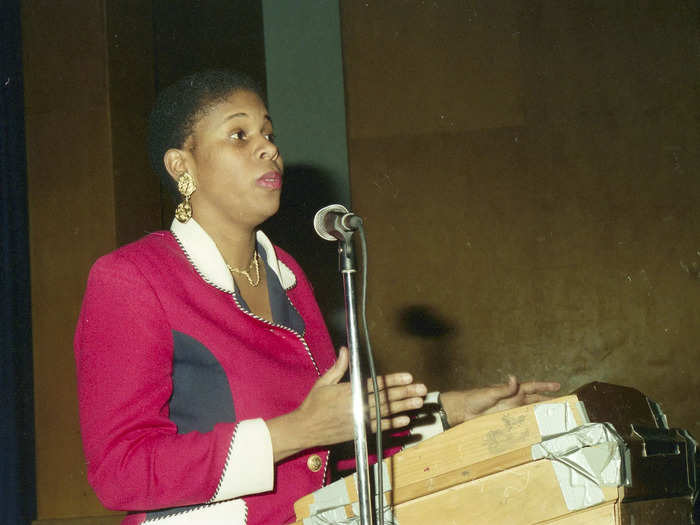
Lenora Fulani ran for president of the United States under the New Alliance Party in 1988, gaining 0.2% of the vote. The pursuit appointed her as the first woman and African American independent candidate to access the ballot in all 50 states. In 1992, she ran again, but received only 0.07% of the vote. Prior to her candidacy, Fulani was well-regarded for her involvement in Black nationalist politics during her time as a student at City University of New York developing social youth programs.
Herman Cain

Prior to announcing his candidacy for president in 2011, Herman Cain worked as vice president at Pillsbury Company and later CEO of Godfather's Pizza. In 1995, he served as an economic advisor to Bob Dole during his presidential campaign, giving him firsthand experience with the highest office before trying his own luck 16 years later. After a series of alleged sexual misconduct reports surfaced, Cain's short lived candidacy came to an end.
Charlene Mitchell
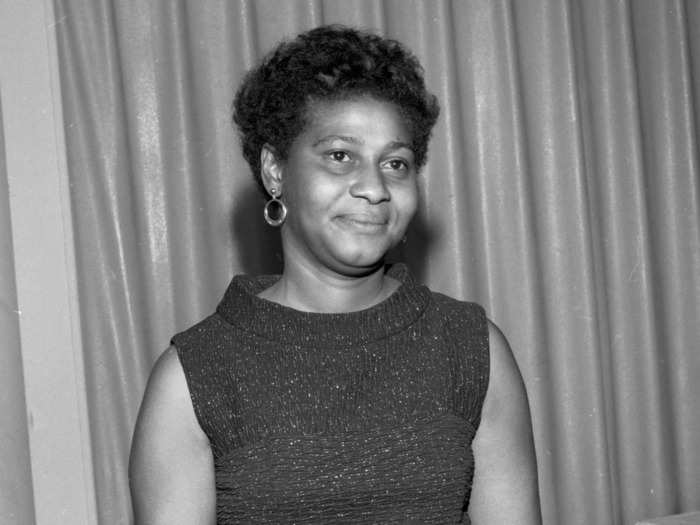
In 1968, Charlene Mitchell became the first Black woman to run for president under the Communist Party. She first joined the party when she was 16. In 1958, she joined the party's national committee, making her the youngest member ever. Her activism continued throughout her entire career — from launching Los Angeles' all-Black chapter, Che-Lumumba Club to leading the campaign to free Angela Davis. Her legacy involved tackling issues such as feminism, civil rights, police violence, economic inequality, and anticolonialism.
Margaret Wright
In 1976, Margaret Wright ran on the People's Party ticket. From working as a Black Panther Party education minister and a factory laborer, Wright focused her activism on labor rights, education reform, and racial justice.
Isabell Masters
Isabell Masters ran for president in 1984, 1992, 1996, 2000, and 2004, under her own political party, Looking Back. Pursuing the head of the nation five times sets her apart as the woman with the most presidential campaigns in US history.
Monica Moorehead
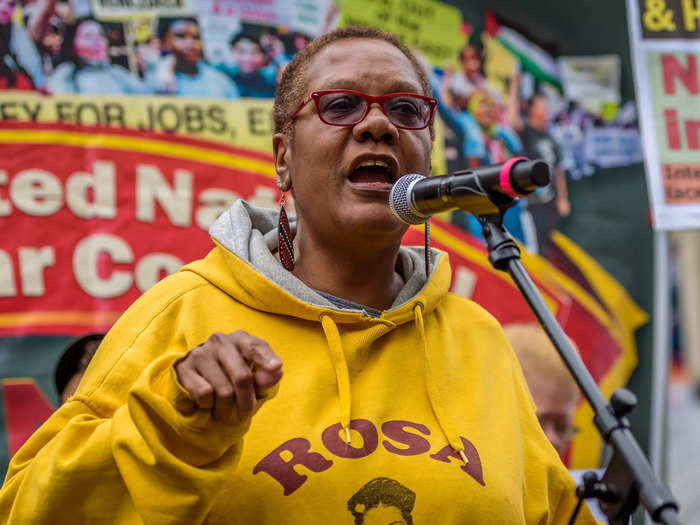
Monica Moorehead ran for president in 1996, 2000, and 2016 on the Workers World Party ticket. With parents who were part of the Montgomery Bus Boycott and worked as professors at a traditionally Black university, Moorehead's interest in social justice sparked at a young age. In grade school, she helped distribute the Black Panther Party's weekend paper, eventually joining the Workers World Party in 1975.
Angel Joy Chavis Rocker
In 1999, Angel Joy Chavis Rocker announced she would run for president under the Republican Party, making her the first African American woman to do so. She hoped to encourage Black influence and inclusion within the GOP while also attracting other minorities.
Cynthia McKinney
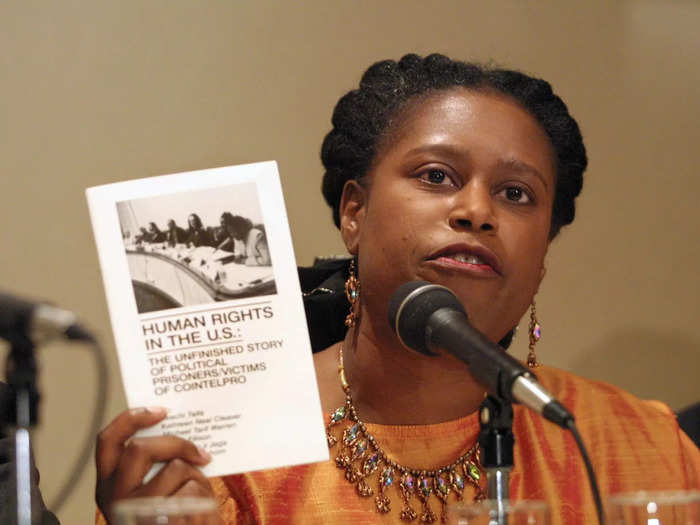
Cynthia McKinney ran for president in 2008 as a Green Party nominee. She also served six terms as Georgia Congresswoman, making her the first African American woman from Georgia to serve in Congress.
Carol Moseley Braun
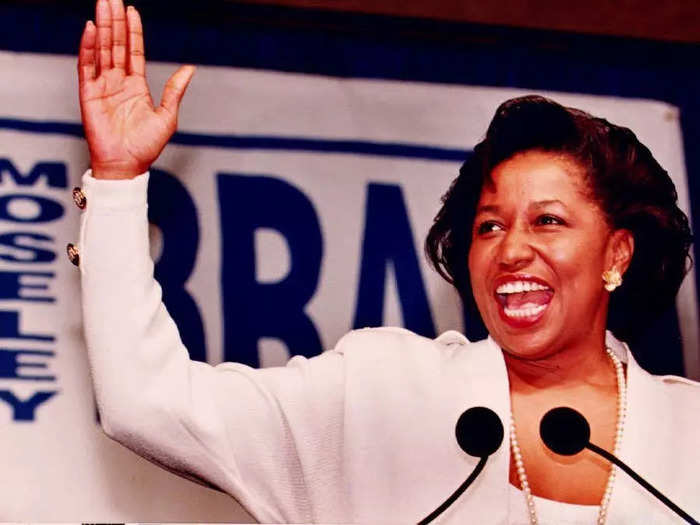
In 2004, Carol Moseley Braun ran for president as a Democrat but lost the nomination to John Kerry. Just 12 years prior, in 1992, she became the first Black woman elected to the US Senate.
Popular Right Now
Popular Keywords
Advertisement